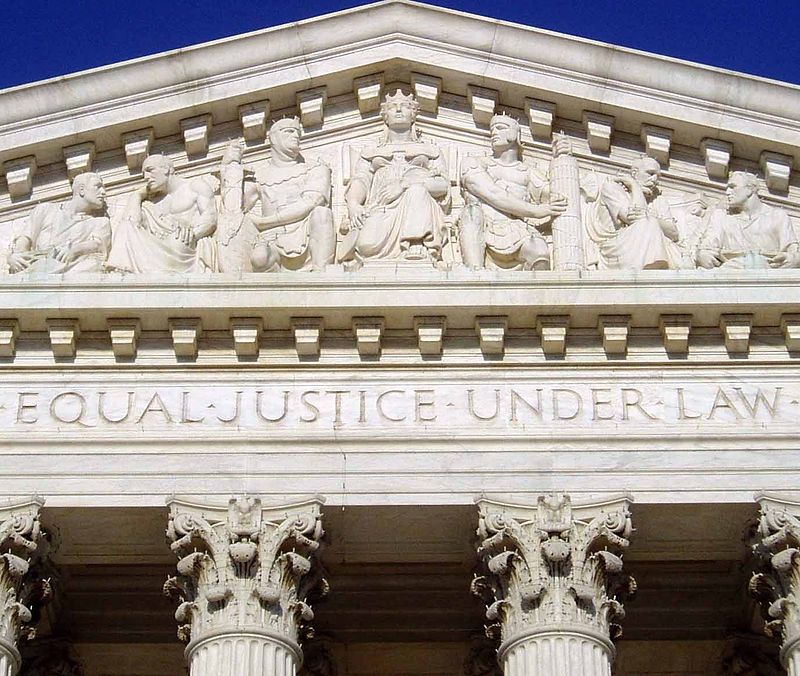The words covered in this article are erratic, mercurial, vacillation, protean, egalitarian, alien, alienate and inalienable/unalienable, inherent, exorable and inexorable, and dispassionate. Previously done words that will reoccur today are compliance, decree, mediate, ambivalence, analogy, incumbent, antithesis, accrue, presume, and commensurate.
Today, we will wrap up our discussion on law by making a few conclusive comments (and picking up new GRE words along the way, of course).
Let us begin with a quote that reiterates the importance of stability in law and why everchanging laws are practically unobeyable.
“Should the law change frequently and erratically, today requiring S, tomorrow ~S, it might be possible in principle for a person to remain in compliance by carefully attending to the mercurial vacillations of sovereign decree, but in reality it may become utterly impracticable for a citizen to keep abreast of such changes while continuing to lead any kind of normal life, let alone to engage in any complex planning that requires reliance on the future state of the law.
In short, frequent and erratic enough changes may make compliance so difficult as to approximate impossibility, such that only a negligible few may have stamina (or good fortune) enough not to run afoul of the law’s protean decrees.”
Timothy Stostad, An Unobeyable Law Is Not A Law: Lon Fuller’S “Desiderata” Reconsidered
Erratic
The adjective erratic means having no fixed pattern/path, therefore, unpredictable.
Mercurial
The adjective mercurial means that which changes very quickly and unpredictably.
In Roman mythology, Mercury was the messenger god; he mediated communication between gods and mortals, and between the dead and the living. With so much back-and-forth messaging to be done, he was constantly on the move and had wings on his helmet and sandals, which enabled him to fly very quickly from place to place.

Romans named the planet Mercury after this god, as the planet seemed to move as fast as the god, taking only 88 days to revolve around the sun. It is for the same qualities of eager mobility that the only liquid metal was also named mercury.
A mercurial temperament is one that flies as quickly between moods as Mercury flew between places.
Vacillation
The verb vacillate means to oscillate between two opposite opinions or courses of action, therefore, to be indecisive. Noun: vacillation.

You have previously learnt the word ambivalence in Day 3. When a person is ambivalent on an issue, they are not sure of what to do, and so, they may vacillate between two opposing courses of action.
For example, the ambivalence that Jane feels towards her job may cause her to vacillate between wanting to quit and wanting to stay, or the ambivalence that John feels towards fatherhood may make him vacillate between honoring his wife’s desire to have a child and staying firm about not having kids.
Let’s unpack the phrase “mercurial vacillations in sovereign decree” from the quote that opened this article.
- A decree of the government issued today requires you to do S. Soon after, the government makes a U-turn and declares that you are required to do the opposite of S from now on. It seems that the government cannot make up its own mind about what it wants from you. It is oscillating between two contradictory positions; it is vacillating.
- This 180-degrees change in government legislation is happening not slowly – over a span of decades – but very fast, seemingly overnight. So, the government’s vacillation is mercurial in nature.
Protean
The adjective protean means shapeshifting, or capable of showing great variety in shape, form or character.
This word comes from the name of the Greek god Proteus, who was the god of rivers and oceans. Just as the nature of the sea is constantly changing and water has no fixed form or shape, Proteus too had no fixed shape or body; he could change at will into a lion, a leopard, a tree, or water.
In 1755, a German painter and naturalist named August Johann Rösel von Rosenhof shared his illustrations of a shapeshifting organism that he had observed in freshwater and could not identify. He called it “Der Kleine Proteus” (“the Little Proteus”).

This is the first known sighting of an amoeba.
Rösel’s analogy of this organism to the Greek god stuck, and throughout the 18th and 19th centuries, biologists and naturalists referred to it as ‘Proteus animalcule’ (the tiny animal that behaves like Proteus).
Today, many different species of amoeba are known; the one that Rösel had discovered is now called Amoeba proteus, in honor of the name he had given to it.
*
During these past few days, you have learnt of many desirable attributes of law, but we have not yet talked about what is perhaps the most important attribute of all: equality of all in the eyes of law.
When assuming office, each judge of the United States Supreme Court takes this solemn oath:
“I, _________, do solemnly swear (or affirm) that I will administer justice without respect to persons, and do equal right to the poor and to the rich, and that I will faithfully and impartially discharge and perform all the duties incumbent upon me as _________ under the Constitution and laws of the United States. So help me God.”
Text of the Oath of Office
The phrase “without respect to persons” can be understood as ‘irrespective of who the person is’ (rich or poor, black or white, male or female, highly educated or illiterate, American or foreign national etc.)
On the front entrance of the United States Supreme Court building is inscribed the motto: Equal justice under law.

A court of justice should give equal hearing and equal treatment to all who knock at its door. Like cases should get like treatment and equal crimes should get equal punishment.
This is the principle of legal egalitarianism.
A system that fails at this, in which similar cases have different outcomes, would exemplify a rule of men, the very antithesis of a rule of law.
Egalitarianism
Egalitarianism is the belief that all people should have equal political, economic, social and civil rights. The less commonly used spellings for this belief are equalitarianism.
The French word for ‘equality’ is ‘égalité.’ The English ‘equality’ leads to equalitarianism, and the French égalité leads to egalitarianism.
*
The United States Declaration of Independence (from the British crown) was pronounced in the Congress on July 4, 1776 and is considered to be the country’s founding document. Its second paragraph starts as follows:
“We hold these truths to be self-evident, that all men are created equal, that they are endowed by their Creator with certain unalienable Rights, that among these are Life, Liberty and the pursuit of Happiness.”
(The ‘men’ in the above quote is used generally, to denote all humans.)
Thus, the idea that all people have the same civil rights is baked into the very founding of America.
Unalienable
In movies, the word alien is usually used for an extra-terrestrial being, someone who does not live on planet Earth. In American law books, the word alien is used for a foreigner who is living in America but is not a citizen.
As an adjective, alien means foreign, strange, not our own.
So, the verb alienate means to make ‘other’ (someone/something that was previously ‘your own’), therefore, to estrange, to turn away from yourself. That which can be alienated is alienable. For example, your house is an alienable property; even if you own it, you can sell it or gift it away.
So, unalienable (spelled more commonly today as inalienable) means that which cannot be taken away from you or given away by you; non-transferable.
Some property rights can be inalienable, especially if the property came to you via inheritance. The below quote shares two examples of this, both from Jane Austen novels.
The heroine of Pride and Prejudice is Elizabeth Bennett while that of Sense and Sensibility is Elinor Dashwood. The main source of income in both the Bennett and the Dashwood households was their inherited estate, and neither had a son. So, upon the death of Mr. Bennett or Mr. Dashwood, the family estate would go to a distant male relative, and the widow and her daughters would have to go live elsewhere on whatever money they had managed to save till then. Both Mr. Bennet and Mr. Dashwood were troubled by this grim prospect but there was nothing they could do to change it except hope for a long enough life to build a sizeable saving corpus or to get their daughters married before their death, or if an early death did come to them, hope for the generosity of their male inheritor towards their family.
“The inalienability of the fathers’ estates provides the dramatic backdrop in Pride and Prejudice and in Sense and Sensibility. Primogeniture—estates being entailed to the first born child, usually along the male line—meant ownership of the estates were inalienable. While Mr. Bennett could use the estate during his lifetime, he could not transfer any right to the estate beyond his life. Hence his wife’s and daughters’ concern about their future if and when he died. This is the pickle Mrs. Dashwood and the girls find themselves in after Mr. Dashwood’s death.”
James Roger, What Use Is an “Inalienable” Right?”
Inalienable rights are those that are inherent properties of being human; they are not selective gifts dependent on a government’s generosity or tolerance, but accrue to a person automatically, simply from the fact that he or she is a human being. These rights cannot be willingly given away by a person either.
Inherent
The adjective inherent means inborn, existing as a permanent and inseparable part.
If all wild animals are inherently cautious, this means that they have an instinctive alertness to danger, it is in their very nature, and you cannot train them to throw caution out of winds.
The fact that in the founding documents of America, the right to life is regarded as an inalienable right has been used by pro-life advocates to strengthen their case in the abortion debate (to recap our earlier discussion on abortion, review Day 2 – The ambiguous nature of ‘Life’).
The right that is inalienable for you is also inalienable for your fellow citizens; as they cannot take it away from you, you cannot take it away from them. So, the inalienable rights also subject all citizens to the responsibility of respecting those same rights of others. As the French novelist Victor Hugo once wrote:
“The liberty of one citizen ends where the liberty of another citizen begins, which comprises in two lines the entire law of human society.”
Victor Hugo, Les Miserables
*
The requirement that all people be given equal treatment under law means not only that the judges and the jury should not be affected by the status, class or gender of the accused or the victim, but also that they should not be affected by public opinion or their own personal disgust at the alleged crime committed by a person; they must still give a fair trial to that person, presume him or her to be innocent until proved guilty, and if their guilt is duly proved, go no farther than the punishment prescribed for that crime under law.
As John Adams (1735-1826) – a Founding Father of America, its second President, and a lawyer – wrote:
“The law no passion can disturb. On the one hand, it is inexorable to the cries and lamentations of the prisoner; on the other, it is deaf, deaf as an adder, to the clamors of the populace.”
‘Adder’ is a type of snake that cannot hear sounds. The idiom ‘deaf as an adder’ means ‘completely deaf.’
Inexorable
The adjective exorable means one who can be persuaded by repeated requests.
Origin: Latin ex-, out + orare, to speak or to pray => ‘one who is moved by speeches or prayers.’ The word ‘orator’ also comes from the same root; it means ‘a public speaker.’
The opposite of exorable is inexorable, meaning one who remains unmoved by prayers or tears or requests.
The law must stand firm and inexorable, like an unyielding and unbreakable stone wall. It should evaluate a case calmly, without emotion, without passion, without fear, fury, or favor. The law must be dispassionate.
Dispassionate
The adjective dispassionate means unaffected by emotion, personal feeling, or bias; impartial, objective.
*

The ideas that we have discussed today – that justice should be egalitarian, dispassionate, and inexorable – come together in the symbolic representation of Lady Justice.
Statues or sculptures of Lady Justice typically show her blindfolded, holding a set of scales in one hand and a sword in the other.
- The blindfold conveys impartiality: the law will not see the wealth, power, class or status of a person.
- The balance scales indicate that both parties to a case will be given equal hearing, and that the judge will carefully balance the offence with the consequences of the offence (meaning, the punishment will be commensurate to the act).
- The sword represents the law’s authority to enforce its ruling; the fact that the sword is unsheathed indicates that this enforcement shall be done: the law will strike the guilty as swiftly, decisively, and inexorably as a sword.
That’s it for today.
With this article, you have completed one full month of the daily vocab program. You must feel proud of yourself for staying true to this daily commitment that you made. You showed up consistently, and I hope that you have learnt not only many new GRE words but also many new intelligent ideas along the way.
“Nothing surely is as potent as a law that may not be disobeyed. It has the force of the water drop that hollows the stone. A small daily task, if it be really daily, will beat the labors of a spasmodic Hercules.”
Anthony Trollope
For the remaining two (or three) days of this month, I recommend that you spend your daily vocab slot in reviewing the words that you have learnt with me over these past 28 days.
Do let me know how your experience with the Vocab Program has been. You can write to me at jk@grecoachjk.com or on LinkedIn.